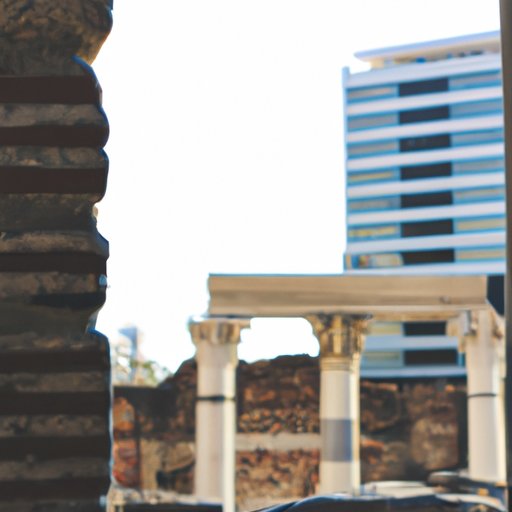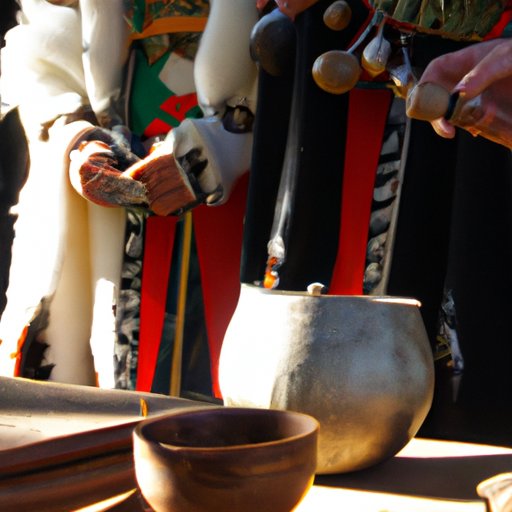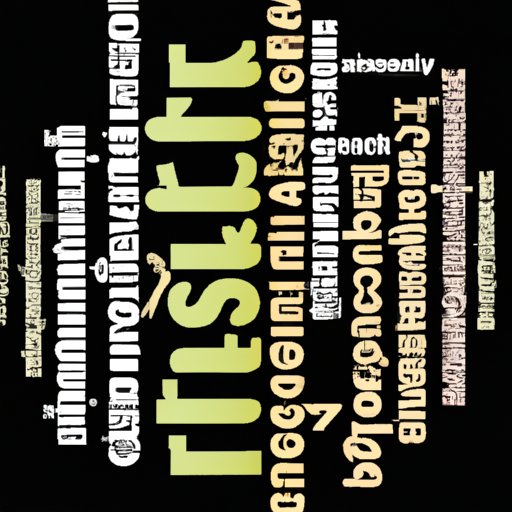Introduction
Cultural history is a field of study that focuses on understanding the diversity and impact of human expression. It looks at how culture has shaped our identities, beliefs, values, and behaviors, as well as our relationships with others. In this article, we will explore what cultural history is and how it impacts our lives today.
A Survey of Cultural History: Exploring the Diversity of Human Expression
Before we can begin to explore the impact of cultural history, we must first define what culture is. According to anthropologist Clifford Geertz, “culture is an historically transmitted pattern of meanings embodied in symbols, a system of inherited conceptions expressed in symbolic forms by means of which men communicate, perpetuate, and develop their knowledge about and attitudes toward life.”1 In other words, culture is a set of shared beliefs, values, and behaviors that are passed down from generation to generation.
Cultural expression takes many forms, including language, music, art, literature, technology, cuisine, clothing, and dance. Different cultures around the world have developed their own unique ways of expressing themselves. For example, in India, the classical dance form of Bharatanatyam is used to tell stories and express emotions, while in Japan, the tea ceremony is used to honor guests and promote harmony. In Mexico, the tradition of Dia de los Muertos (Day of the Dead) is celebrated to remember and honor deceased loved ones.

The Impact of Cultural History on Modern Life
Cultural history has had a profound impact on modern life. It shapes our identities, beliefs, values, and behaviors, as well as our relationships with others. Our experiences are informed by the cultures we come from, and this affects how we view the world and interact with others. Studies have shown that people who have strong ties to their cultural heritage feel more connected to their community and have a greater sense of belonging.2
Cultural history also shapes our beliefs and values. Studies have found that people are more likely to believe in certain values when they are surrounded by people who share those same values.3 For example, if you grow up in a family or community where education is valued, you are more likely to value education than if you were raised in a place where education is not seen as important.
Finally, cultural history has a significant impact on our behavior. Research has shown that people who strongly identify with their cultural heritage are more likely to engage in culturally specific behaviors.4 This could include anything from participating in traditional ceremonies to speaking a particular language or following certain dietary restrictions.

Investigating the Origins of Cultural Traditions
In order to understand the influence of cultural history, it is important to investigate the origins of cultural traditions. Geography plays a major role in shaping cultures. Different climates, terrain, and resources influence the way people live and the type of lifestyle they adopt. Religion and philosophy also have a major impact on culture. People often use religious and philosophical beliefs to explain their surroundings and make sense of the world.
Historical events can also shape culture. Wars, migrations, and conquests can all have a lasting impact on cultural development. For example, the Spanish conquest of the Aztecs led to the spread of Catholicism throughout Latin America, and the slave trade had a major impact on African-American culture in the United States.

Examining the Intersection of Culture and Politics
Culture and politics are closely intertwined. Culture influences political structures and systems, and politics shapes cultural expression and identity. Power dynamics play a major role in cultural history, as dominant groups have the ability to impose their values and beliefs on marginalized populations. For example, in colonial India, British rule led to the imposition of English language, laws, and customs on the native population.
Exploring the Role of Art in Cultural History
Art is an important form of cultural expression. It allows people to communicate ideas and feelings in creative ways. Art can be used to express cultural identity, celebrate important events, and protest injustice. It can also be used to represent the power dynamics between different groups. For example, the murals of Diego Rivera depict the struggles of the Mexican people under colonial rule.
Understanding How Cultural History Shapes Our Identities
Cultural history has a major impact on our identities. It influences how we view ourselves and how we see the world. Our cultural heritage shapes our perspectives and values, and it affects our choices and behaviors. Studies have shown that people who identify strongly with their cultural heritage tend to lead healthier and more fulfilling lives.5
Conclusion
Cultural history is an important field of study that examines the diversity and impact of human expression. It looks at how culture has shaped our identities, beliefs, values, and behaviors, as well as our relationships with others. By exploring the different types of cultural expressions and their origins, as well as the intersection of culture and politics and the role of art in cultural history, we can gain a better understanding of how culture influences our lives today.
By studying cultural history, we can better appreciate the diversity of human expression and gain insight into the complexities of our world. We can learn to respect and value different cultures, and gain a deeper understanding of our own identities. Ultimately, cultural history helps us to create a more unified and compassionate world.
(Note: Is this article not meeting your expectations? Do you have knowledge or insights to share? Unlock new opportunities and expand your reach by joining our authors team. Click Registration to join us and share your expertise with our readers.)
